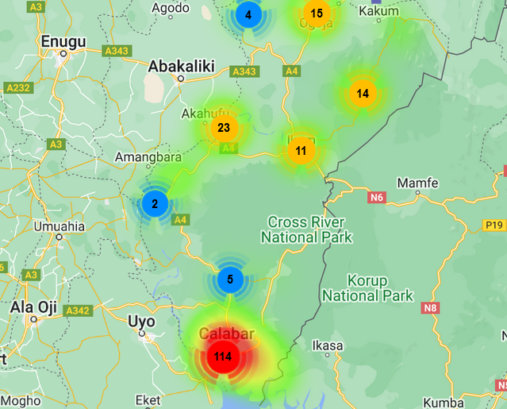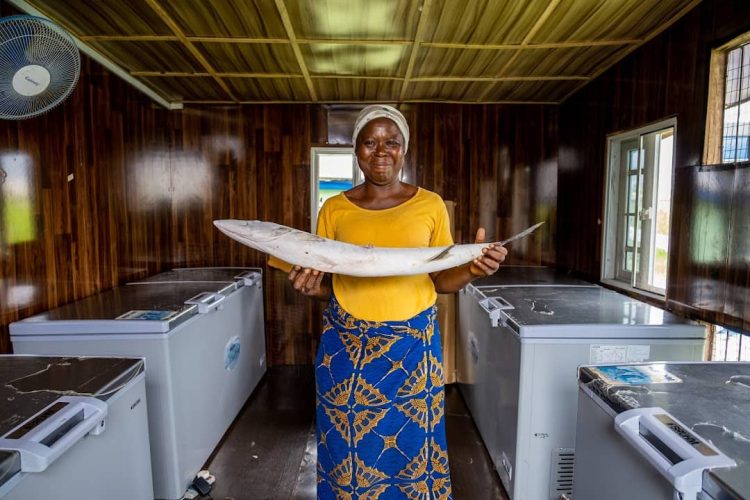
Criminal Violence in Cross River State | September 11-17, 2022
September 16, 2022
APPLY: Women for Energy Jobs Program
September 30, 2022
This special edition of the weekly update spotlights criminal violence in the Niger Delta. Criminal violence including kidnapping, ritual killing, robbery, and clashes between cult gangs is a major driver of insecurity in the region. According to data (see map above), criminal violence caused over a thousand fatalities in the Niger Delta between January 2020 and August 2022. Recent data shows that criminal violence is increasingly becoming lethal and devastating in the region. In August 2022, for instance, a 37-year-old man was allegedly decapitated by ritualists in Elebele town in Ogbia LGA, Bayelsa State. Separately, in August, a community leader was reportedly killed by gunmen in Effurun town in Uvwie LGA, Delta State. In September, a senior civil servant was allegedly killed by gunmen in Akure, the Ondo state capital. Separately, in September, five passengers were reportedly abducted by kidnappers along Emohua-Kalabari Road in Emohua LGA, Rivers State. More recently, on September 17, 2022, gunmen reportedly killed two residents and burned houses and a market in Orsu-Ihiteukwa town in Orsu LGA, Imo State.
WHY IT MATTERS
The growing prevalence of criminal violence is a serious threat to human security and economic development in the Niger Delta. If not appropriately de-escalated, the situation could negatively impact the regional security dynamics, especially against the backdrop of rising ethnic and communal tensions over the recent award of an Oil and Gas Pipeline and Waterways Surveillance contract by the Nigerian National Petroleum Company Limited to an ex-militant leader.
Social: The prevalence of criminal violence could have devastating psychosocial impact on residents. It could create wider feelings of uncertainty that could embolden residents to adopt aggressive coping mechanisms and self-help measures including the formation of ethnic militias and community vigilante groups which could bring about human rights violations and social strife in the region. This could adversely affect the health and social wellbeing of residents.
Economic: Criminal violence could destabilize the regional economy. Robbery, kidnapping for ransom, and killing of residents for ritual purposes could cause serious economic disruptions that could undermine business activities and undercut household income. Robbery and kidnapping for ransom could impose huge financial burdens on individuals, families and businesses in the region. This could force business to relocate and reduce government’s revenue from taxation.
Political: If not de-escalated, the current wave of criminal violence could cause serious challenges for law enforcement and governance. It could compel residents to adopt aggressive coping mechanisms and self-help strategies that could result in lawlessness and civil disorder.
.
.
.
Click here to download









